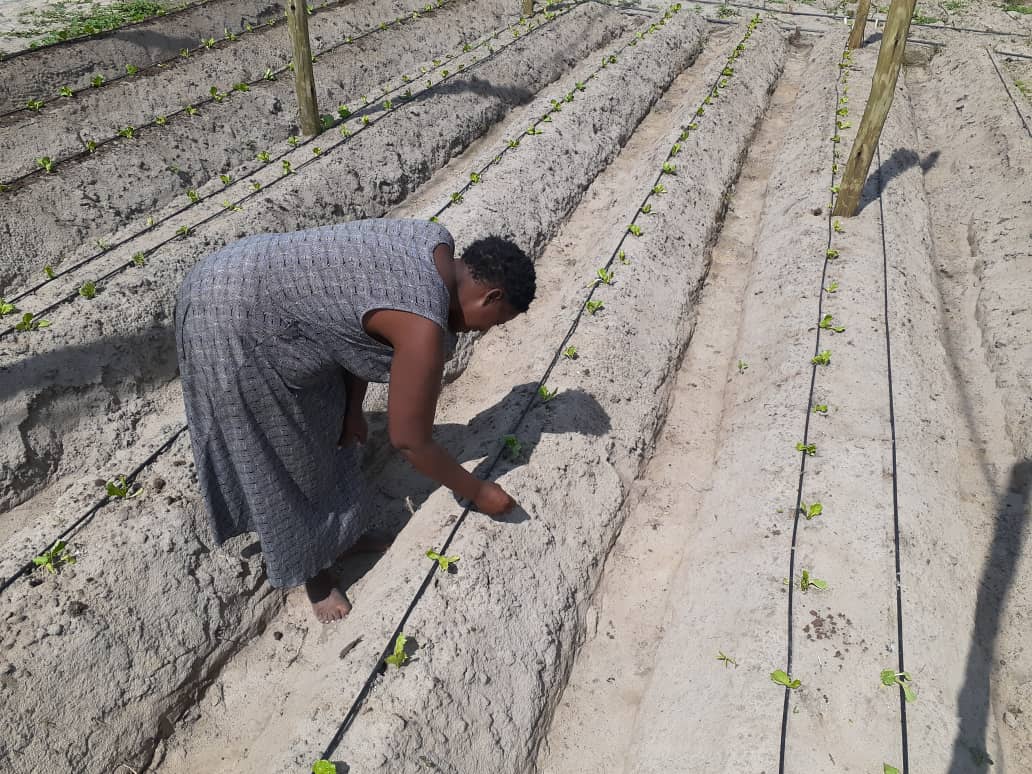- Home
- About Us
- Background
- Mandate
- Cubango Okavango River Basin
- Governance
- Strategy and Approach
- Member States
- Our Work
- Partners
- Climate Resilient Infrastructure Development Facility (CRIDF)
- European Union (EU)
- Southern African Development Community (SADC)
- Swedish International Development Cooperation Agency (SIDA)
- The World Bank (WB)
- United Nations Development Programme (UNDP)
- United States Agency For International Development (USAID)
- Resources
- News and Events
- Opportunities
- Contact Us
- FAQ's
- Connect With Us
- i
- t
- f

Enhancing Horticulture Production and Linkage to Higher End Tourism Markets Demonstration Project
Thursday, April 16, 2020




The United Nations Development Program (UNDP) with finance from Global Environmental Facility (GEF) is providing technical and financial support to OKACOM through the “Support to the Implementation of the Cubango-Okavango River Basin Strategic Action Programme”. A key component of this project is the demonstration of environmentally conscious livelihoods and socio-economic development in the Basin. Selected demonstration projects advocate for uplifting of livelihoods of basin communities by improving socio-economic through harnessing natural resources in manner that will minimise adverse impacts and enhance protection of the Basin ecosystem. One of these is the demonstration project in Botswana which seeks to enhance horticulture production and ensure linkages to markets for local farmers.
Located in heart of Ngamiland/Northwest District, the Okavango Delta is Botswana’s premium tourism destination and contributes an estimated USD 1 million as revenue from tourism activities per annum.However, the participation of local communities in the tourism value chain is limited to unskilled labour, cultural tourism and royalties to communities. Local farmers in the district contribute less than 15% of the total horticulture produce consumed within Okavango. The bulk of horticultural produce is imported from elsewhere within Botswana and South Africa. The production and supply of horticultural products to the tourism industry presents one of the opportunities to integrate local communities in the lucrative industry and promote climate smart agriculture. Key challenges hindering local production include high temperatures and erratic rainfall, coupled with the lack of technical skills to produce higher value crops.
The tourism sector does not always know what the local producers are growing locally, thus pointing to the poor organisational arrangements associated with local producers. In addition, poor consistency of supply hinders local producers to penetrate the tourism value chain. This is due to the fact that local farmers tend to grow seasonal crops mostly of low value, which fail to meet the continuous demand of the tourism establishments. The Ministry of Agricultural Development and Food Security (MADFS) of Botswana, in partnership with OKACOM, is implementing Horticulture Demonstration Projects within the vicinity of Maun and Shakawe. The Project addresses barriers which hinder quality horticultural production such as poor farming techniques and the lack of coordinated cropping schedules. In addition, the Project facilitates coordination and collaboration amongst local farmers with the view to enhance their ability to jointly lobby for access to existing markets.
Following the selection of twenty demonstration farmers in Maun using specific criteria with the MADFS, Ngamiland Horticulture Growers Association and Botswana Horticulture Council; the project has established water and other production related infrastructures in Maun. In 2019, drought prevented any further water infrastructure development on the 20 demonstration sites. To mitigate this risk, a local water infrastructure development contractor was contracted to assess potentials to establish well points on each demonstration site. Following an intensive feasibility assessment, only six sites were feasible and thus six well points have been drilled and each equipped with a pump and a 10,000 litre water tank. In addition, one borehole was equipped with a solar pump following success drilling and pump testing by the farmer.
To enable climate smart agriculture practices, each of the seven demonstration sites was equipped with shade net suitable for the local climate, equipped with accessories compatible with the individual farmers demonstration crop. Additionally, farming inputs such as seeds, seedling trays, growing media and pesticides were procured and distributed to all seven farmers with technical guidance of the Maun Horticulture Demonstration Farmers Mentor under Ngamiland Council of Non-Governmental Organisations (NCONGO) as the implementing partner, in close collaboration with the local Extension Officers from the MADFS. The farmers will learn the entire production process of higher value crops including tomatoes, eggplants, green peppers, green beans, chilli, iceberg lettuce and strawberries. The farmers have since prepared seedlings and transplanted their first demonstration crops using the crop scheduling to ensure sustained market supplies. Crops are expected to enter the market by June 2020 and engagements with potential markets are ongoing to create awareness and encourage support for the local produce. The Project is currently in the process of providing similar infrastructure on six other demonstration sites in Shakawe using the same approach.
Thematic Areas & Activities
News
subscribe for news notification by email
Photo Credit: Kostatin Luchansky, National Geographic, Okavango Wilderness Project.

